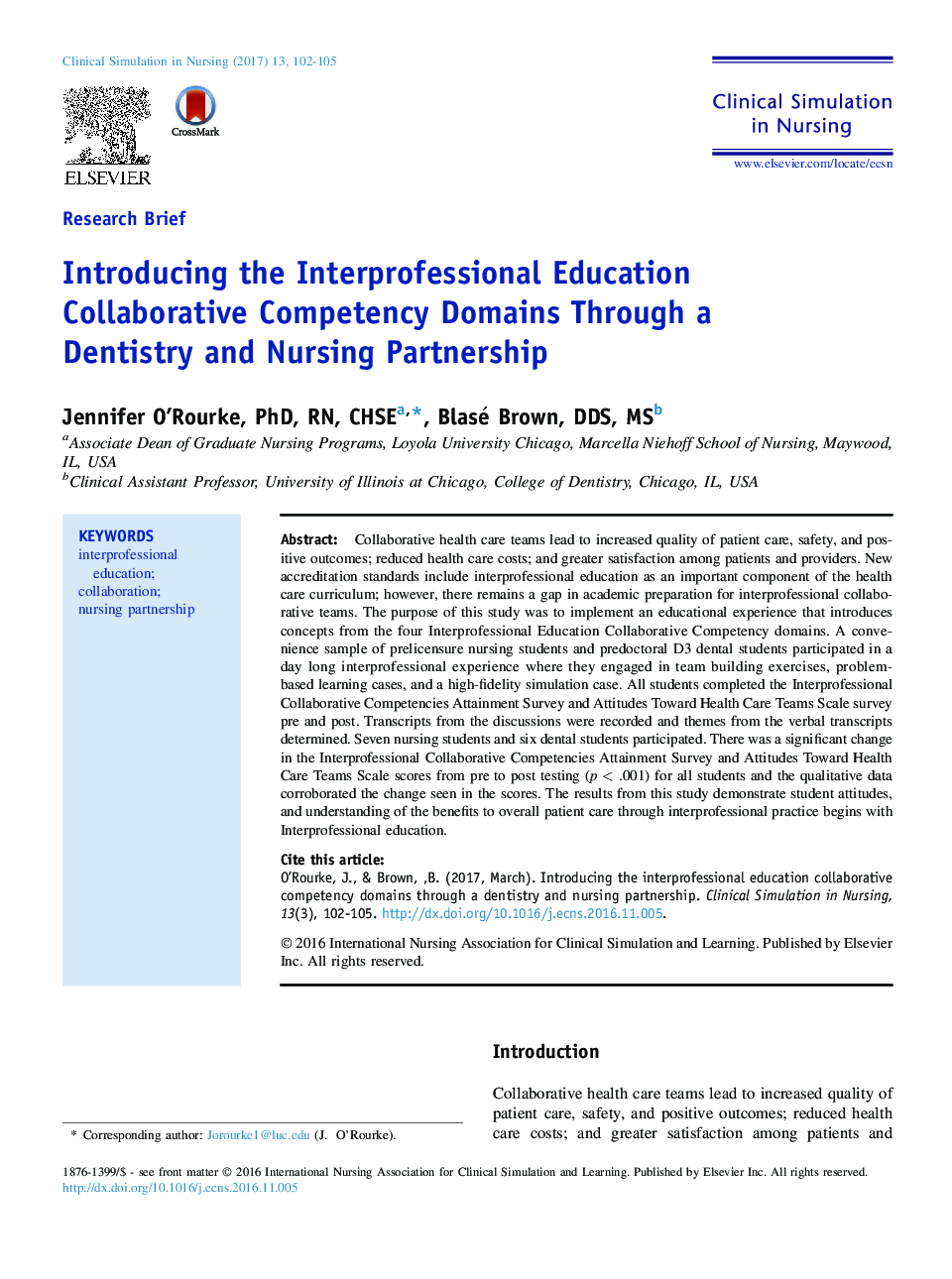| Article ID | Journal | Published Year | Pages | File Type |
|---|---|---|---|---|
| 5567588 | Clinical Simulation in Nursing | 2017 | 4 Pages |
Abstract
Collaborative health care teams lead to increased quality of patient care, safety, and positive outcomes; reduced health care costs; and greater satisfaction among patients and providers. New accreditation standards include interprofessional education as an important component of the health care curriculum; however, there remains a gap in academic preparation for interprofessional collaborative teams. The purpose of this study was to implement an educational experience that introduces concepts from the four Interprofessional Education Collaborative Competency domains. A convenience sample of prelicensure nursing students and predoctoral D3 dental students participated in a day long interprofessional experience where they engaged in team building exercises, problem-based learning cases, and a high-fidelity simulation case. All students completed the Interprofessional Collaborative Competencies Attainment Survey and Attitudes Toward Health Care Teams Scale survey pre and post. Transcripts from the discussions were recorded and themes from the verbal transcripts determined. Seven nursing students and six dental students participated. There was a significant change in the Interprofessional Collaborative Competencies Attainment Survey and Attitudes Toward Health Care Teams Scale scores from pre to post testing (p < .001) for all students and the qualitative data corroborated the change seen in the scores. The results from this study demonstrate student attitudes, and understanding of the benefits to overall patient care through interprofessional practice begins with Interprofessional education.
Related Topics
Health Sciences
Nursing and Health Professions
Nursing
Authors
Jennifer PhD, RN, CHSE, Blasé DDS, MS,
